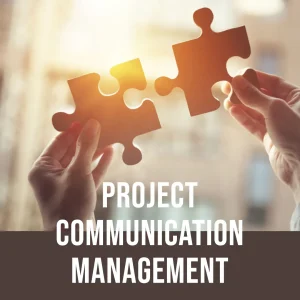Introduction
Transitioning from a technical role to project management is a significant career move that can open up new opportunities and challenges for professionals in technical fields. As organizations increasingly rely on effective project management to drive innovation and efficiency, the demand for skilled project managers continues to grow. This section aims to provide guidance for technical professionals who are contemplating this transition, highlighting the importance of project management, the skills gap that may exist, and encouraging those ready to take the leap.
- Importance of Project Management in Technical Fields: Project management plays a crucial role in ensuring that technical projects are completed on time, within budget, and to the required quality standards. It involves planning, executing, and overseeing projects, which is essential in fields such as engineering, IT, and product development. Effective project management not only enhances productivity but also fosters collaboration among team members, leading to successful project outcomes and satisfied stakeholders.
- Understanding the Skills Gap: While technical professionals possess valuable expertise in their respective fields, transitioning to project management requires a different skill set. Key competencies for project managers include leadership, communication, risk management, and strategic planning. Understanding this skills gap is vital for professionals as they prepare for the transition. It may involve developing soft skills, gaining knowledge in project management methodologies, and acquiring experience in managing teams and resources.
- Encouragement for Technical Professionals: For those considering a shift from a technical role to project management, it is important to recognize that this transition is not only feasible but can also be highly rewarding. Embracing this change can lead to career advancement, increased responsibility, and the opportunity to influence project direction and outcomes. Technical professionals are encouraged to leverage their existing knowledge while actively seeking opportunities to develop the necessary project management skills. With the right mindset and preparation, this transition can be a fulfilling step in their career journey.
Understanding Project Management
Project management is a structured approach to planning, executing, and overseeing projects to achieve specific goals within a defined timeframe and budget. It plays a crucial role across various industries, including IT, construction, healthcare, and finance, by ensuring that projects are completed efficiently and effectively. The significance of project management lies in its ability to coordinate resources, manage risks, and deliver results that align with organizational objectives.
Definition and Significance
- Definition: Project management involves the application of knowledge, skills, tools, and techniques to project activities to meet project requirements. It encompasses various processes, including initiation, planning, execution, monitoring, and closure.
- Significance: Effective project management is essential for minimizing risks, optimizing resource use, and ensuring stakeholder satisfaction. It helps organizations achieve strategic goals, improve productivity, and maintain competitive advantage in a rapidly changing market [1].
Key Differences Between Technical Roles and Project Management Roles
Transitioning from a technical role to project management involves a shift in focus and responsibilities:
- Focus on Leadership: While technical roles often emphasize individual contributions and technical expertise, project management requires a focus on leadership, team dynamics, and stakeholder engagement. Project managers must guide teams, resolve conflicts, and motivate members to achieve project goals [2].
- Broader Perspective: Project managers need to adopt a holistic view of projects, considering not just the technical aspects but also the business implications, timelines, and resource allocation. This contrasts with technical roles, which may concentrate on specific tasks or technologies [3].
- Communication Skills: Effective communication is paramount in project management. Project managers must convey information clearly to diverse stakeholders, including team members, clients, and executives, ensuring everyone is aligned and informed throughout the project lifecycle [4].
Common Project Management Methodologies
Understanding various project management methodologies is essential for professionals transitioning into this field. Here are some of the most widely used approaches:
- Agile: Agile is an iterative approach that emphasizes flexibility, collaboration, and customer feedback. It is particularly popular in software development, allowing teams to adapt to changes quickly and deliver incremental value [5].
- Waterfall: The Waterfall methodology is a linear and sequential approach where each phase must be completed before moving on to the next. It is best suited for projects with well-defined requirements and minimal expected changes [6].
- Scrum: A subset of Agile, Scrum focuses on delivering work in short cycles called sprints. It encourages regular feedback and continuous improvement, making it ideal for dynamic environments [7].
- Lean: Lean project management aims to maximize value by minimizing waste and optimizing processes. It is often used in manufacturing and service industries to enhance efficiency and productivity [8].
By understanding these foundational elements of project management, technical professionals can better prepare themselves for a successful transition into management roles, leveraging their existing skills while developing new competencies essential for leading projects effectively.
Assessing Your Skills and Experience
Transitioning from a technical role to project management requires a thorough evaluation of your existing skills and experiences. This process not only helps you identify your strengths but also highlights areas for development. Here are some key points to consider:
Identifying Technical Skills Valuable in Project Management
- Technical Proficiency: Your background in technical roles provides a solid foundation for understanding project requirements and challenges. Skills such as software development, systems analysis, or engineering principles can be crucial in managing projects effectively, especially in tech-driven environments [11].
- Project-Specific Knowledge: Familiarity with the tools and technologies used in your field can enhance your ability to communicate with team members and stakeholders. This knowledge is critical for making informed decisions and guiding project direction [8].
Assessing Soft Skills
- Communication: Effective communication is essential in project management. Assess your ability to convey ideas clearly, listen actively, and facilitate discussions among team members and stakeholders. Strong communication skills can help bridge the gap between technical teams and non-technical stakeholders [1].
- Leadership: Evaluate your leadership capabilities, including your ability to motivate and guide a team. Leadership in project management involves not just directing tasks but also inspiring team members to achieve common goals [1].
- Problem-Solving: Reflect on your problem-solving skills. Project managers often face unexpected challenges, and your ability to analyze situations, think critically, and devise solutions is invaluable [12].
Evaluating Past Experiences
- Project Involvement: Look back at your career and identify instances where you played a role in project-related activities. This could include leading a project, coordinating tasks, or contributing to project planning. Such experiences can demonstrate your potential for project management [13].
- Transferable Skills: Consider how your technical experiences can translate into project management competencies. For example, if you have experience in managing timelines, budgets, or resources in your technical role, these are directly applicable to project management [10].
- Mentorship and Guidance: Seek feedback from mentors or colleagues who have experience in project management. They can provide insights into your strengths and areas for improvement, helping you to better understand your readiness for a management role [1].
By systematically assessing your technical and soft skills, as well as your past experiences, you can create a clear picture of your qualifications for a transition into project management. This self-evaluation will not only prepare you for the challenges ahead but also empower you to articulate your value to potential employers in the field.
Gaining Relevant Knowledge and Certifications
Transitioning from a technical role to project management requires a solid foundation of knowledge and the right credentials. Here are key points to consider for professionals looking to make this shift:
Overview of Popular Project Management Certifications
Project Management Professional (PMP):
- Recognized globally, the PMP certification is ideal for experienced project managers. It demonstrates a comprehensive understanding of project management principles and practices.
- Eligibility typically requires a combination of project management experience and education, along with passing a rigorous exam [12].
Certified Associate in Project Management (CAPM):
- The CAPM is designed for those with less experience in project management. It provides a fundamental understanding of project management terminology and processes.
- This certification is a great starting point for technical professionals who are new to project management [12].
Scrum Master Certification:
- For those interested in Agile project management, becoming a Certified Scrum Master (CSM) can be beneficial. This certification focuses on the Scrum framework, which is widely used in software development and other industries.
- It emphasizes team collaboration and iterative progress, making it suitable for professionals transitioning from technical roles [12].
Importance of Formal Education and Training in Project Management
Formal education in project management can significantly enhance your understanding of the field. Many universities and institutions offer degree programs or specialized courses in project management. These programs often cover essential topics such as:
- Project planning and execution
- Risk management
- Budgeting and resource allocation
- Leadership and team dynamics
Having a formal education not only provides theoretical knowledge but also helps in developing critical thinking and problem-solving skills necessary for effective project management [5][14].
Recommendations for Online Courses and Resources
In addition to certifications and formal education, there are numerous online courses and resources available that can help you build your project management skills:
- Coursera and edX: These platforms offer courses from top universities on various aspects of project management, including Agile methodologies and risk management.
- LinkedIn Learning: This platform provides a wide range of project management courses, from beginner to advanced levels, often taught by industry professionals.
- PMI (Project Management Institute): The PMI website offers a wealth of resources, including webinars, articles, and study guides for various certifications.
- Udemy: This platform features affordable courses on specific project management skills, including software tools like Microsoft Project and Trello.
By pursuing these certifications and educational opportunities, technical professionals can effectively prepare themselves for a successful transition into project management roles, equipping themselves with the necessary knowledge and credentials to excel in their new careers [9][14].
Building a Project Management Network
Transitioning from a technical role to project management can be a significant career move, and building a robust professional network is essential for a successful transition. Networking not only opens doors to new opportunities but also provides valuable insights and support from experienced professionals in the field. Here are some key strategies to help you connect with other project managers and professionals, find a mentor, and leverage professional organizations and events.
Strategies for Connecting with Other Project Managers and Professionals
- Attend Industry Events and Conferences: Participating in project management conferences, seminars, and workshops is a powerful way to meet fellow project managers. These events provide opportunities to engage in discussions, share experiences, and learn from industry leaders. Networking at these gatherings can lead to valuable connections that may assist you in your career transition [6][12].
- Join Project Management Associations: Becoming a member of professional organizations, such as the Project Management Institute (PMI), can significantly enhance your networking efforts. These associations often host local chapter meetings, webinars, and networking events that allow you to connect with other project management professionals [5][7].
- Engage in Online Communities: Utilize social media platforms and online forums dedicated to project management. Participating in discussions, sharing insights, and asking questions can help you build relationships with other professionals in the field. LinkedIn groups and specialized project management forums are excellent places to start [5][6].
How to Find a Mentor in the Project Management Field
- Identify Potential Mentors: Look for experienced project managers within your network or through professional organizations. Consider individuals whose career paths you admire or who have expertise in areas you wish to develop.
- Reach Out and Build Relationships: Once you identify potential mentors, reach out to them with a genuine message expressing your interest in their work and your desire to learn from them. Building a rapport through informal conversations can lead to a mentorship relationship.
- Be Open to Guidance: When you find a mentor, be receptive to their advice and insights. A mentor can provide valuable feedback on your transition, help you navigate challenges, and introduce you to other professionals in the field [2][4].
Leveraging Professional Organizations and Events
- Participate Actively: Engage actively in professional organizations by attending meetings, volunteering for committees, or contributing to discussions. This involvement not only enhances your visibility but also demonstrates your commitment to the field of project management [5][6].
- Utilize Networking Platforms: Many professional organizations offer online platforms for members to connect. Take advantage of these resources to reach out to other members, share your experiences, and seek advice on your transition [5][7].
- Follow Up and Maintain Connections: After meeting new contacts at events or through organizations, follow up with a thank-you note or a message expressing your appreciation for their insights. Maintaining these connections can lead to future opportunities and collaborations [14].
Applying for Project Management Roles
Transitioning from a technical role to project management can be a rewarding career move, allowing you to leverage your technical expertise while developing leadership skills. Here are some actionable tips to help you navigate this transition effectively.
Tailoring Your Resume and Cover Letter
- Highlight Relevant Skills: Focus on skills that are crucial for project management, such as leadership, communication, decision-making, and risk management. Ensure these skills are prominently featured in both your resume and cover letter [3][11].
- Use Project Management Terminology: Familiarize yourself with project management jargon and incorporate it into your application materials. This demonstrates your understanding of the field and aligns your experience with the expectations of hiring managers [10].
- Showcase Relevant Experience: Even if your previous roles were technical, emphasize any project-related responsibilities you had, such as leading a team, managing timelines, or coordinating with stakeholders. This helps to bridge the gap between your technical background and the project management role you aspire to [8][12].
Communicating Transferable Skills in Interviews
- Prepare Examples: Be ready to discuss specific instances where you demonstrated project management skills, such as problem-solving, team collaboration, or successful project delivery. Use the STAR (Situation, Task, Action, Result) method to structure your responses effectively [9][10].
- Translate Technical Skills: Clearly articulate how your technical expertise can benefit project management. For instance, your ability to understand complex technical concepts can help in communicating effectively with both technical and non-technical team members [10][11].
- Emphasize Soft Skills: Project management requires strong interpersonal skills. Highlight your ability to lead teams, resolve conflicts, and build trust, as these are essential for managing projects and guiding teams toward success [3][12].
Gaining Project Management Experience in Your Current Role
- Seek Opportunities for Involvement: Look for ways to participate in project management tasks within your current position. This could include volunteering to lead a small project, assisting a project manager, or taking on responsibilities that involve planning and coordination [8][11].
- Pursue Training and Certification: Consider enrolling in project management courses or obtaining certifications such as PMP (Project Management Professional) or CAPM (Certified Associate in Project Management). These credentials can enhance your knowledge and credibility in the field [11][12].
- Network with Project Managers: Build relationships with colleagues in project management roles. They can provide insights into the profession, share their experiences, and potentially offer mentorship or guidance as you transition [9][13].
By following these strategies, technical professionals can effectively position themselves for project management roles, showcasing their unique skills and experiences while gaining the necessary knowledge to succeed in this new career path.
Overcoming Common Challenges
Transitioning from a technical role to project management can be a rewarding yet challenging journey. As technical professionals eye management roles, it is essential to prepare for potential hurdles that may arise during this transition. Here are some key points to consider:
Identifying and Addressing Common Fears and Misconceptions
- Fear of Losing Technical Skills: Many technical professionals worry that moving into management will lead to a decline in their technical skills. It is important to recognize that while the focus may shift, maintaining a strong technical foundation can enhance your credibility as a project manager. Embrace the idea that your technical background can be an asset in understanding project requirements and communicating effectively with your team [6][13].
- Misconceptions About Project Management: There is often a belief that project management is solely about overseeing tasks and timelines. In reality, it involves a range of skills including leadership, communication, and risk management. Understanding the multifaceted nature of project management can help alleviate fears and prepare you for the diverse responsibilities ahead [6][12].
Strategies for Managing the Learning Curve
- Continuous Learning: Transitioning to project management requires a commitment to ongoing education. Familiarize yourself with project management methodologies, tools, and best practices. Engaging in formal training or certification programs can provide a structured approach to learning and help build confidence in your new role [13][14].
- Seek Mentorship: Finding a mentor who has successfully made the transition can provide invaluable insights and guidance. A mentor can help you navigate challenges, share experiences, and offer advice on effective project management strategies [13][14].
- Practice Soft Skills: Developing soft skills such as communication, decision-making, and conflict resolution is crucial. These skills are often as important as technical knowledge in managing teams and projects effectively. Consider participating in workshops or training sessions focused on these areas [6][10].
Advice for Dealing with Resistance from Colleagues and Superiors
- Build Relationships: Establishing strong relationships with your team and stakeholders can help mitigate resistance. Open communication and collaboration foster trust and can ease concerns about your transition into management [10][12].
- Demonstrate Value: Show your colleagues and superiors how your technical expertise can benefit the project and the team. By highlighting your unique perspective and problem-solving abilities, you can gain their support and demonstrate your capability as a project manager [10][14].
- Be Open to Feedback: Embrace constructive criticism and be willing to adapt your approach. This openness can help you build rapport with your team and demonstrate your commitment to growth and improvement in your new role [10][12].
By addressing these common challenges and implementing effective strategies, technical professionals can successfully transition into project management roles, paving the way for a fulfilling career in leadership.
Conclusion
Transitioning from a technical role to project management can be a transformative career move for professionals seeking new challenges and opportunities. This shift not only allows technical experts to leverage their specialized knowledge but also positions them to lead teams and projects effectively. Here are some key takeaways to consider:
- Value of Transitioning: Moving into project management enables technical professionals to broaden their impact within an organization. By stepping into a leadership role, they can influence project outcomes, drive innovation, and contribute to strategic decision-making. This transition is not just a career change; it is an opportunity to harness technical expertise in a way that fosters collaboration and drives project success [11][14].
- Continuous Learning and Adaptability: Embracing a project management role requires a commitment to ongoing learning and adaptability. As the landscape of project management evolves, professionals must be willing to develop new skills, particularly in areas such as communication, leadership, and stakeholder management. This adaptability will not only enhance their effectiveness as project managers but also ensure they remain relevant in a rapidly changing work environment [13][15].
In conclusion, the transition from a technical role to project management is a strategic move that can lead to fulfilling career growth. By embracing this change, committing to continuous learning, and taking actionable steps, technical professionals can successfully navigate their path into project management and make a significant impact in their organizations.
Find out more about Shaun Stoltz https://www.shaunstoltz.com/about/.
This post was written by an AI and reviewed/edited by a human.



